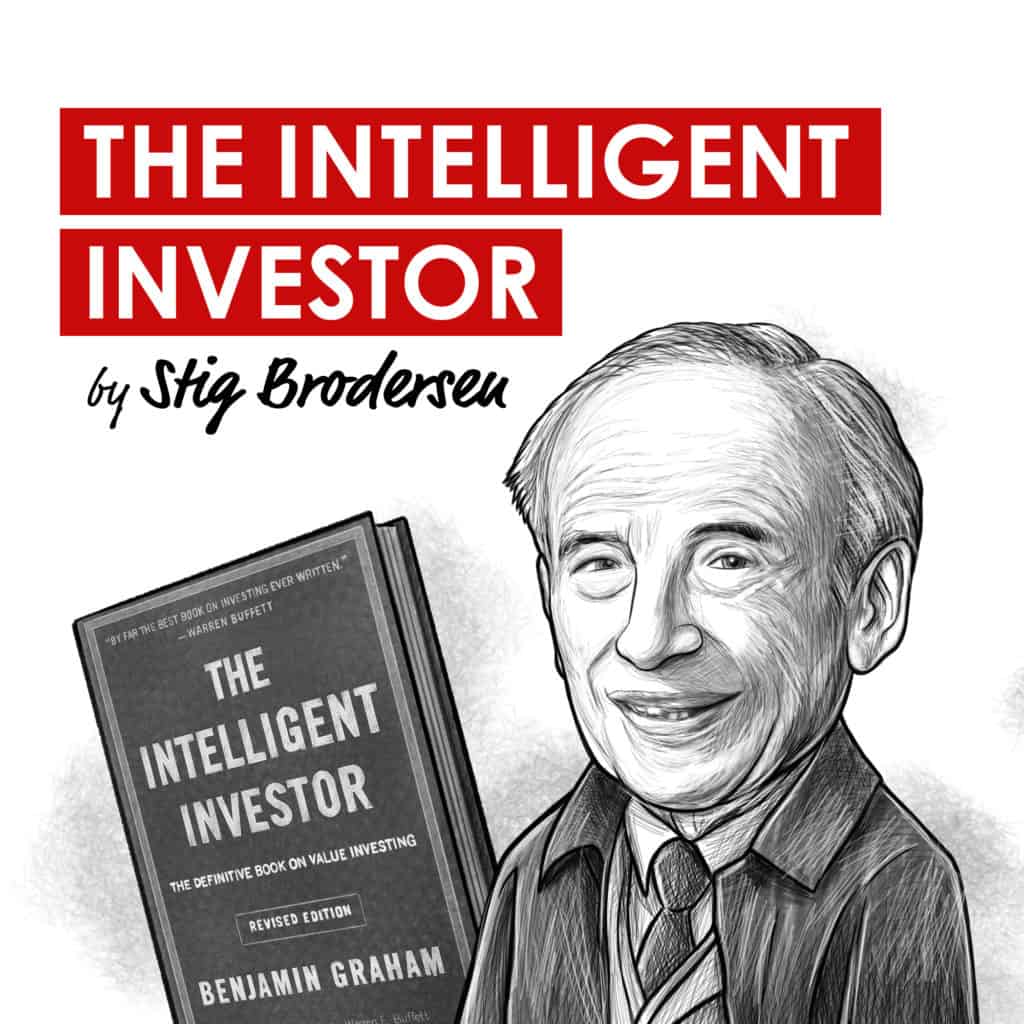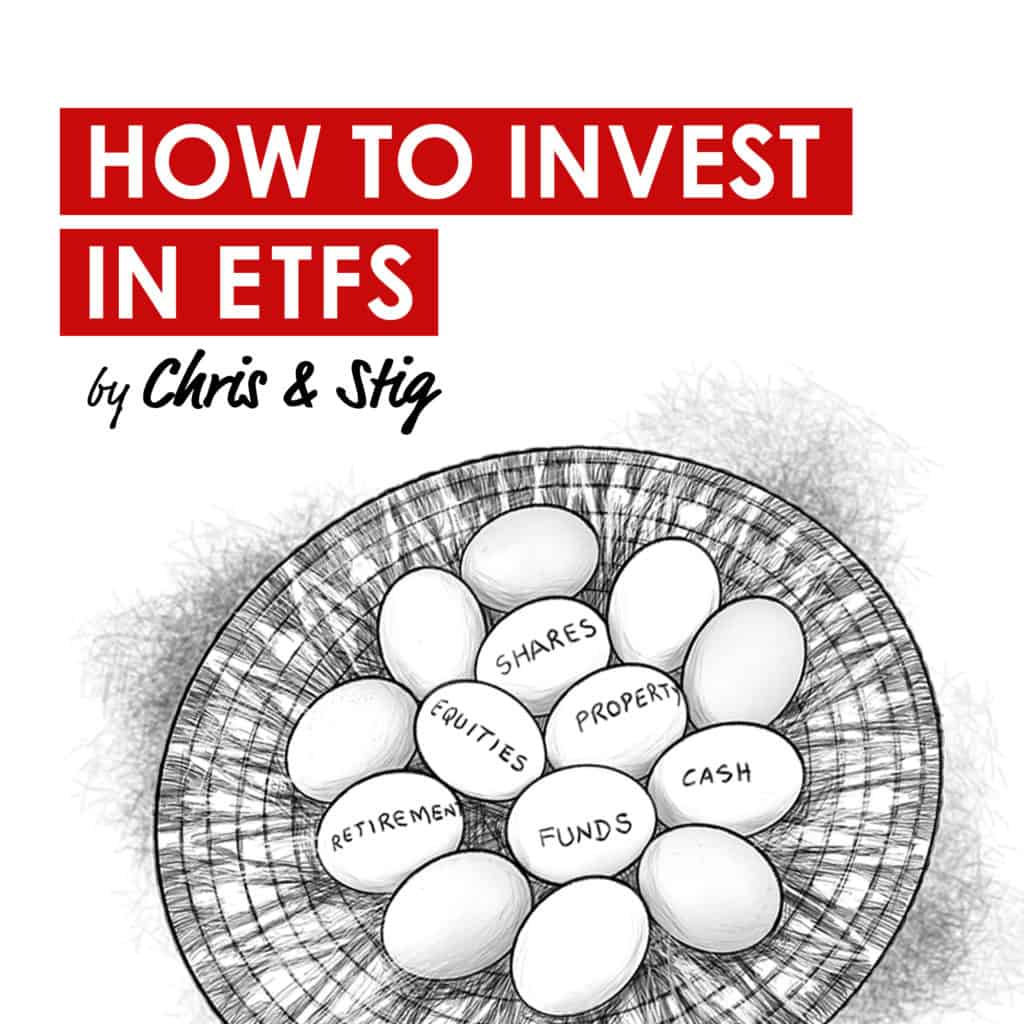Understand the financial markets
in just a few minutes.
Get the daily email that makes understanding the financial markets
easy and enjoyable, for free.
The Importance of an Investment Philosophy: How to Find Yours
By Rebecca Hotsko • Published: • 6 min read

During a recent episode of the Millennial Investing podcast where I interview Aswath Damodaran, he emphasized the importance of having an investment philosophy and how it can impact one’s investment decisions.
In this article, we’ll explore what an investment philosophy is, why it’s crucial to have one, and how you can find your own.
WHAT IS AN INVESTMENT PHILOSOPHY?
According to Aswath Damodaran, a well-defined investment philosophy should encompass three critical elements:
- Where you think markets make mistakes
- Why you think markets make those mistakes and,
- What will cause those mistakes to get corrected in the future
“Every investment philosophy is built on the premise that markets make mistakes. You need to be clear on what you think those mistakes are.” –Aswath Damodaran
Aswath draws a clear distinction between an investment philosophy and an investment strategy. An investment strategy outlines specific actions, such as buying low P/E stocks, whereas a philosophy is the underlying framework that guides those actions.
In other words, a philosophy is the way you think about investing and the markets that leads you to buy low P/E stocks. Unlike a strategy, a core investment philosophy should remain constant, providing a foundation for all investment decisions. By staying true to this philosophy, investors can remain focused on their long-term goals, even as strategies may change over time.
Why is an investment philosophy important?
Your investment philosophy should serve as the foundation for all of your other portfolio-related decisions.
In today’s digital age, there’s no shortage of data and opinions on investing strategies and tactics, which can lead to the temptation of constantly chasing the latest investment trends or buying an investment just because another superinvestor did. However, without a well-defined philosophy that is core to your beliefs as an investor, you’ll likely find yourself bouncing from one fad to another, resulting in poor financial decisions.
If you want to be an active investor, you should establish your investment philosophy before implementing any portfolio strategy. By establishing your beliefs about markets and clear principles for investment decision-making, it’s much easier to avoid impulsive or emotional responses to market fluctuations.
Example of Investment Philosophy
Let’s look at the philosophy of a growth investor as an example. Peter Lynch is a well known growth investor.
Growth investing is a philosophy built on the premise that markets make mistakes in valuing growth.
This happens because the future growth of a company is often highly uncertain, and when there’s a lot of uncertainty, investors may overestimate or underestimate these growth prospects, leading to mistakes in valuation.
Growth investing is based on the premise that investors are more likely to make mistakes when valuing future growth for a company rather than valuing existing assets or things that the company has already done (which is the philosophy of value investors).
This means that to be a growth investor, you must also believe that you are able to value future growth better than the market and that you will make money by valuing those growth assets better than the market.
As example, Peter Lynch’s core philosophy was that investors don’t make mistakes with valuing mature companies, they make the biggest mistakes on valuing growth companies. Peter said the correction will come when the companies deliver growth, and deliver it efficiently.
HOW TO DEVELOP YOUR OWN PHILOSOPHY
In general, you can follow these three steps to build your own investment philosophy.
Step 1: Generate a view about how markets behave and where you think they fail. Your views on market efficiency or inefficiency are the foundations for your investment philosophy.
Step 2: You then need to figure out why those mistakes will get corrected in the future, because you don’t make money finding mistakes, you make money from those mistakes being corrected.
Step 3: This step is tactical. You take your views about how investors behave and markets work (or fail to work) and try to devise strategies that reflect your beliefs.
Understand the financial markets
in just a few minutes.
Get the daily email that makes understanding the financial markets
easy and enjoyable, for free.
WHAT IS WARREN BUFFETT’S INVESTMENT PHILOSOPHY?
Warren Buffett’s investment philosophy is centered around the concept of value investing. He believes that markets can make mistakes in valuing companies, and that investors can take advantage of these mistakes by buying stocks that are undervalued relative to their intrinsic value.
Buffett invests in companies with strong competitive advantages, long-term growth potential, and companies he believes are trading for less than they are worth. On top of this, he often holds these investments for many years, rather than trying to time the market. Buffett is a perfect example of how his value investing philosophy has been constant over time, despite his investing strategy or style changing over time from his early cigar butt investing days with his first teacher Benjamin Graham, to then switching his strategy and buying “wonderful companies at a fair price” after meeting Charlie Munger.

WHAT IS BENJAMIN GRAHAM’S INVESTMENT PHILOSOPHY?
Benjamin Graham is widely regarded as the father of value investing, and his investment philosophy emphasizes buying stocks at a discount to their intrinsic value. Graham believed in the importance of fundamental analysis, and encouraged investors to focus on a company’s financial statements, including its balance sheet, income statement, and cash flow statement. He also emphasized the importance of margin of safety, or buying stocks with a significant margin between their market price and their intrinsic value to protect against losses.
Benjamin Graham believed that markets make mistakes in valuing existing company assets and that this will correct when value investors eventually bid up the price to its intrinsic value. Graham’s approach has been highly influential and has served as the foundation for many successful value investors, including Warren Buffet.

WHAT IS KEN FISHER’S INVESTMENT PHILOSOPHY?
Ken Fisher’s investment philosophy is based on his fundamental belief in capitalism and how free markets function. He believes that markets are relatively efficient discounters of widely-known information, and the sole determinants of securities pricing are supply and demand.
He believes that the only way to make money in the markets is to seek out information that is not widely known or information that is not already reflected in the stock price, or interpret widely-known information uniquely. His strategy tries to make money by identifying and capitalizing on these information advantages. According to Ken, the correction will come when the market eventually incorporates this information and prices adjust accordingly.
SHOULD INVESTORS SEEK TO EMULATE WARREN BUFFETT’S INVESTMENT PHILOSOPHY? WHAT ABOUT OTHER SUPERINVESTORS?
Investors may find it valuable to study the investment philosophies of successful investors such as Warren Buffett and other superinvestors to learn from their approaches and principles and help figure out which resonates most with them. However, it’s important to not just blindly copy any super investor’s investment philosophy or strategy because their beliefs about markets may not be the same as yours which means that their strategies may not work for you.
Investors can look to other superinvestors and find which philosophy they resonate with most. But they should develop their own personalized investment philosophy that aligns with their beliefs and long-term objectives.
FREQUENTLY ASKED QUESTIONS ABOUT INVESTMENT PHILOSOPHY
Understand the financial markets
in just a few minutes.
Get the daily email that makes understanding the financial markets
easy and enjoyable, for free.
About The Author

Rebecca Hotsko
Rebecca Hotsko is an investor and entrepreneur based in Canada. Most recently, she co-founded a luxury boat sharing club in Kelowna B.C. Rebecca graduated from the University of Saskatchewan with a bachelor’s degree in Economics and since has completed CFA level I and II. In prior years, Rebecca gained valuable experience working as an analyst for the Bank of Canada, the federal energy regulator and in investment management. Her passion for teaching others how to invest using time-tested strategies backed by empirical data also led her to create an investing blog in 2020.
Rebecca Hotsko
Rebecca Hotsko is an investor and entrepreneur based in Canada. Most recently, she co-founded a luxury boat sharing club in Kelowna B.C. Rebecca graduated from the University of Saskatchewan with a bachelor’s degree in Economics and since has completed CFA level I and II. In prior years, Rebecca gained valuable experience working as an analyst for the Bank of Canada, the federal energy regulator and in investment management. Her passion for teaching others how to invest using time-tested strategies backed by empirical data also led her to create an investing blog in 2020.







